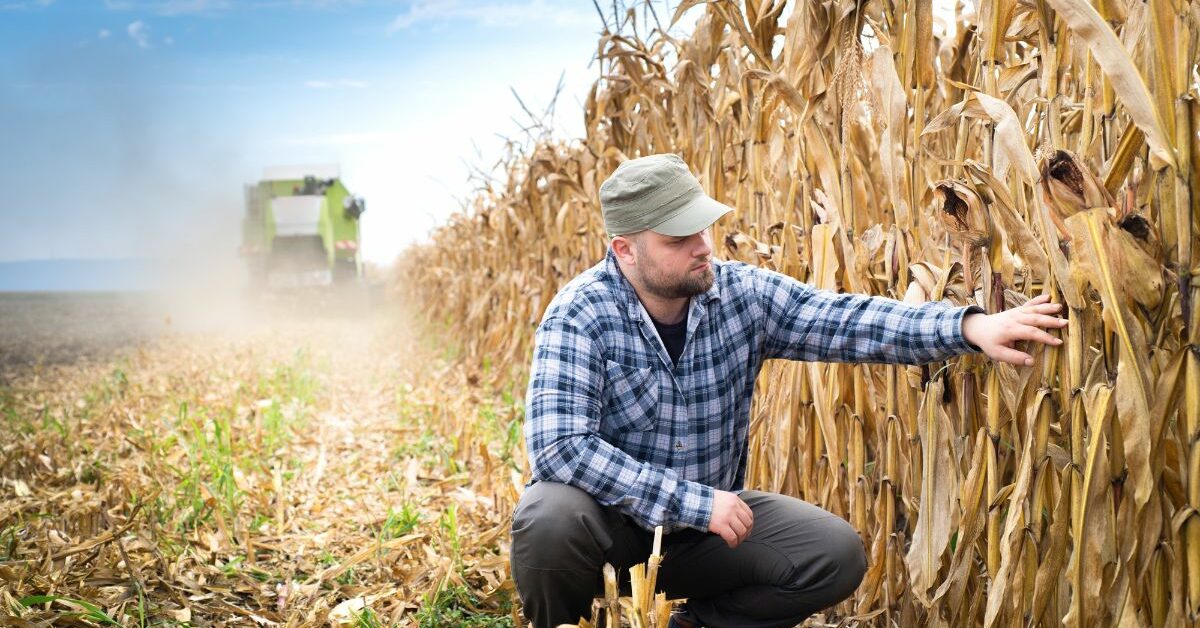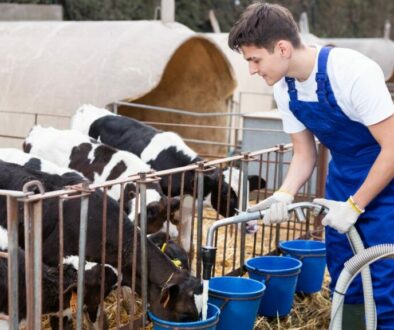How To Become A Farmer?
If you’re looking to turn your love of the outdoors and agriculture into a career, becoming a farmer might be the perfect path for you. While there are many different types of farmers, from dairy and livestock to crop and vegetable farmers, the basics of becoming a farmer remain the same. In this article, we’ll explore the steps to becoming a farmer, the skills needed for the job, what a farmer is, and the benefits of working in this field.
Steps To Becoming A Farmer
Step 1:
Becoming a farmer is a fulfilling and rewarding career choice, but it requires a lot of hard work and dedication. If you’re interested in pursuing a career in agriculture, here are some steps to help you get started:
- Gain Experience and Knowledge in Agriculture
Before you can become a successful farmer, it’s important to gain experience and knowledge in agriculture. This can be done in a variety of ways, such as:
Studying agriculture in college
Working on a farm as an intern or apprentice
Starting your own small farm and learning on the job
No matter which path you choose, it’s important to gain experience in planting, harvesting, and working with animals. This will give you a solid foundation to build upon as you start your own farm. - Create a Business Plan
Once you have some experience under your belt, the next step is to create a business plan. This should include:
Your goals for the farm
The types of crops or animals you want to work with
Your marketing plan
A budget
You’ll also need to secure funding for your farm. This can come from investors, loans, or grants. Having a solid business plan in place will help you attract investors and secure funding. - Find a Location for Your Farm
After you have your business plan in place, you’ll need to find a location for your farm. Research land in your area and make sure it’s suitable for farming. You’ll also need to obtain any necessary permits and licenses for your farm.
When choosing a location for your farm, it’s important to consider factors such as soil quality, water availability, and climate. You’ll also want to consider the proximity to markets and transportation options. - Build Your Farm
Once you have your land and funding secured, it’s time to start building your farm. This can include:
Planting your crops
Building animal shelters
Purchasing any necessary equipment
Hiring any employees or farmhands
Building a farm takes a lot of hard work and dedication, but it’s also incredibly rewarding. As you start to see your crops grow and your animals thrive, you’ll know that all of your hard work was worth it. - Continually Evaluate and Improve Your Operations
Finally, once your farm is up and running, it’s important to continually evaluate and improve your operations. Keep track of your finances, learn from mistakes, and stay up-to-date on the latest farming practices and technologies.
Farming is an ever-evolving industry, and it’s important to stay informed and adapt to changes in the market. By continually evaluating and improving your operations, you’ll be able to stay competitive and successful in the long run.
Skills Needed to Become a Farmer
In addition to the skills mentioned above, there are several other important skills that are essential for becoming a successful farmer. One of these skills is knowledge of crop and soil management. This includes understanding the different types of soil and how to properly care for crops to ensure maximum yield.
Another important skill for farmers is animal husbandry. This includes knowledge of animal nutrition, breeding, and healthcare. Farmers who raise livestock must also be able to manage their herds and ensure that they are healthy and well-cared for.
In addition to these technical skills, farmers must also possess strong leadership and decision-making abilities. They must be able to make tough decisions quickly and effectively, and to lead their teams in a way that promotes productivity and efficiency.
Finally, successful farmers must be able to stay up-to-date with the latest trends and technologies in their industry. This includes staying informed about new farming techniques, equipment, and regulations.
Becoming a successful farmer requires a wide range of skills and traits. From physical stamina and problem-solving abilities to financial management and leadership skills, farmers must possess a diverse set of abilities to thrive in this challenging and rewarding profession.
What is A Farmer?
A farmer is more than just someone who works in agriculture to raise crops, livestock, or other food products. They are the backbone of our food system, responsible for providing the food that sustains our communities. Farmers are often deeply connected to the land they work on and have a profound understanding of the natural systems that make agriculture possible.
While some farmers work independently, many are part of larger organizations, such as co-ops or community-supported agriculture (CSA) programs. These organizations allow farmers to pool their resources and knowledge to create more sustainable and profitable operations.
Farmers face a variety of challenges in their work, from unpredictable weather patterns to changing market conditions. They must be adaptable and creative in order to succeed. Many farmers are also deeply committed to sustainable and regenerative agriculture practices, which prioritize the health of the land and the long-term viability of their operations.
One of the most important aspects of a farmer’s work is managing their crops and livestock. This involves everything from selecting the right seeds and breeds to planting, fertilizing, and harvesting. Farmers must also be skilled in animal husbandry, ensuring that their livestock are healthy and well-cared for.
Marketing is another crucial aspect of a farmer’s work. In order to sell their products, farmers must be able to communicate the value of their crops and livestock to potential buyers. This may involve developing relationships with local restaurants and grocery stores or participating in farmers’ markets and other community events.
Finally, farmers must also be skilled in financial management. They must be able to balance the costs of running their operations with the income generated by their crops and livestock. This requires careful planning and budgeting, as well as a deep understanding of the broader economic forces that shape the agricultural industry.
The Benefits of Becoming a Farmer
One benefit of working as a farmer is the sense of community that often comes with the job. Many farmers belong to cooperatives or work together to share resources and knowledge. This sense of camaraderie can be invaluable, especially for new farmers who are just starting out.
Farmers also have the opportunity to make a positive impact on the environment. By using sustainable farming practices, such as crop rotation and natural pest control, farmers can help to preserve the land and reduce their carbon footprint. Many farmers also use renewable energy sources, such as solar panels or wind turbines, to power their operations.
Working as a farmer can also provide a sense of purpose and meaning. Farmers are responsible for producing the food that sustains their communities, and this can be a deeply fulfilling role. In addition, many farmers are passionate about their work and take pride in producing high-quality, organic produce.
Finally, working as a farmer can be a great way to stay active and healthy. Farming is a physically demanding job that requires strength, endurance, and agility. Farmers are often on their feet for long hours, performing tasks such as planting, harvesting, and caring for animals. This can be a great way to stay in shape and maintain a healthy lifestyle.
While farming may not be the right career choice for everyone, there are many benefits to working as a farmer. From the opportunity to work with the land and animals, to the sense of community and purpose that comes with the job, farming can be a rewarding and fulfilling career choice.
Becoming a farmer requires hard work, dedication, and a love for agriculture. Whether you’re interested in crop farming or animal husbandry, the steps to becoming a farmer are largely the same. By gaining experience, creating a business plan, securing funding, finding a location, building your farm, and continually evaluating and improving your operations, you can start your own successful farming career.




